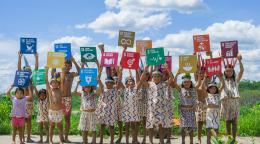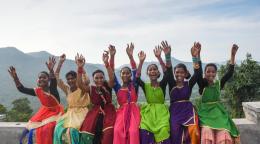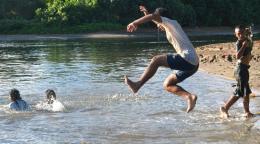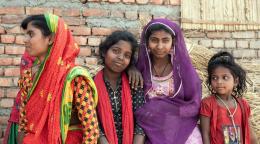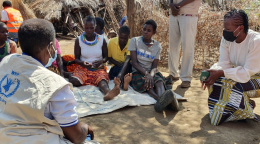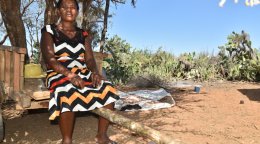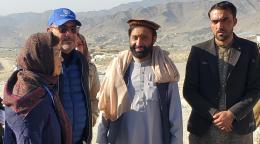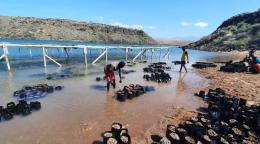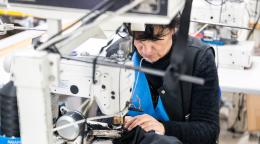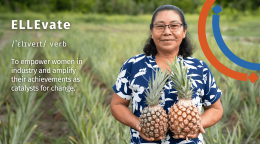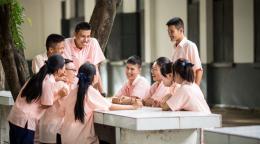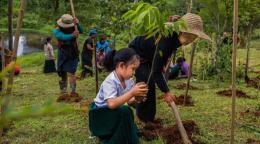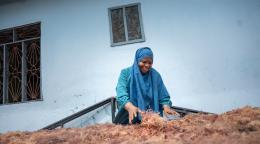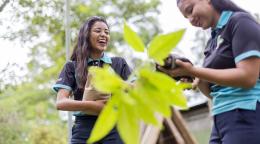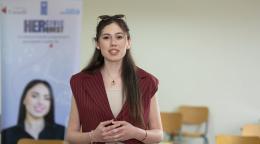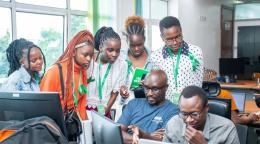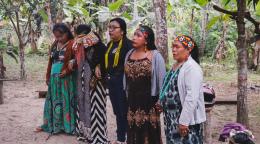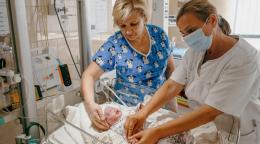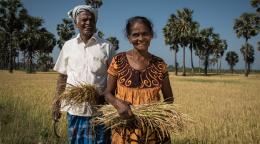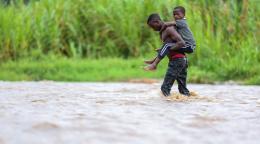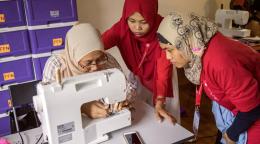Jordan's Green Champions: Women and Youth Driving Environmental Change
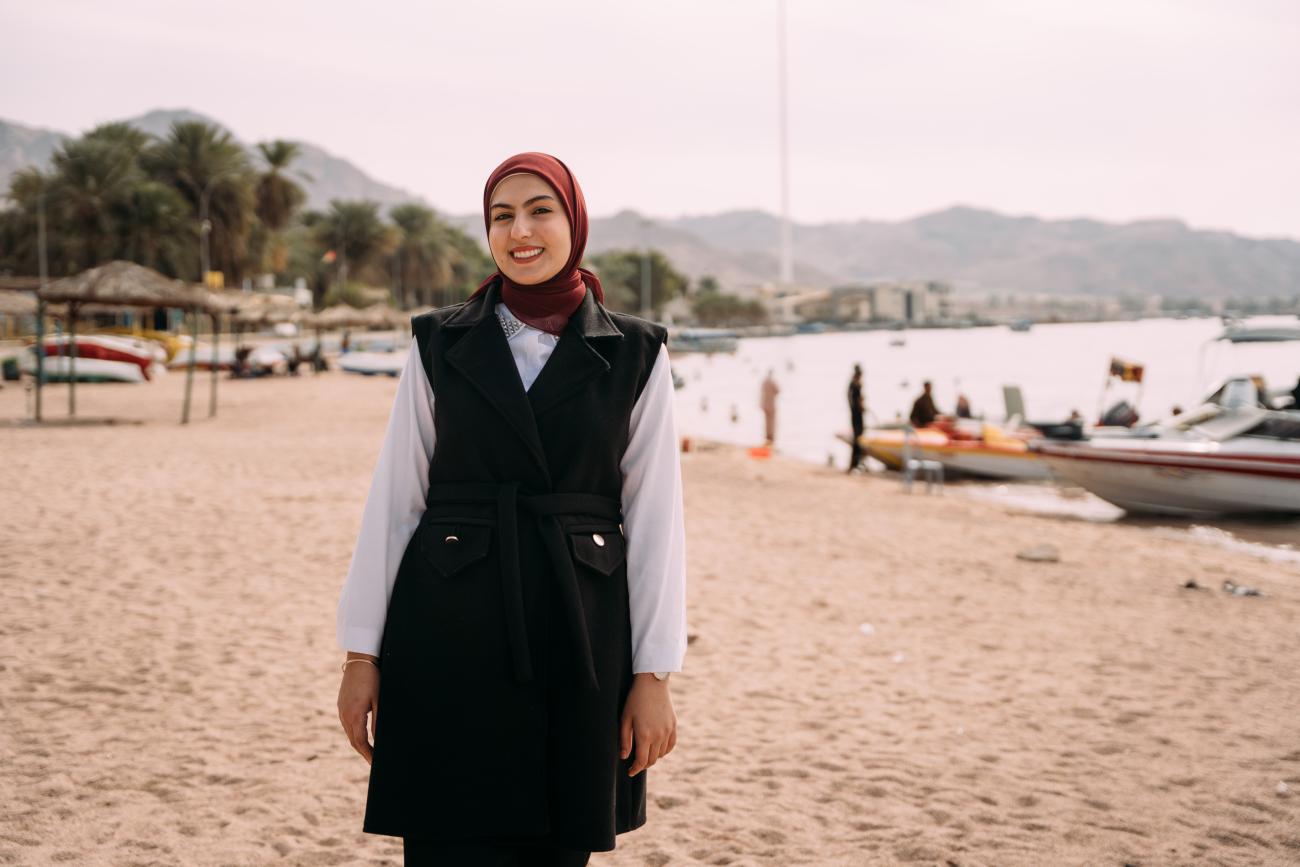
Across West Asia, skyrocketing temperatures, increasing water scarcity and land degradation are putting the lives and livelihoods of millions at risk. Climate change has the region in its grip, threatening peace and security. Jordan has borne first-hand witness to this, with rising incidences of extreme weather events, flash floods, loss of species in its diverse ecosystems.
In the face of these mounting challenges, Jordan's women and youth are turning adversity into opportunities for change and progress. Supported by various UN initiatives in Jordan, they are making significant strides in their communities, raising awareness and shaping environmentally friendly behaviours:
Dina Rashdan: Unlocking value in waste
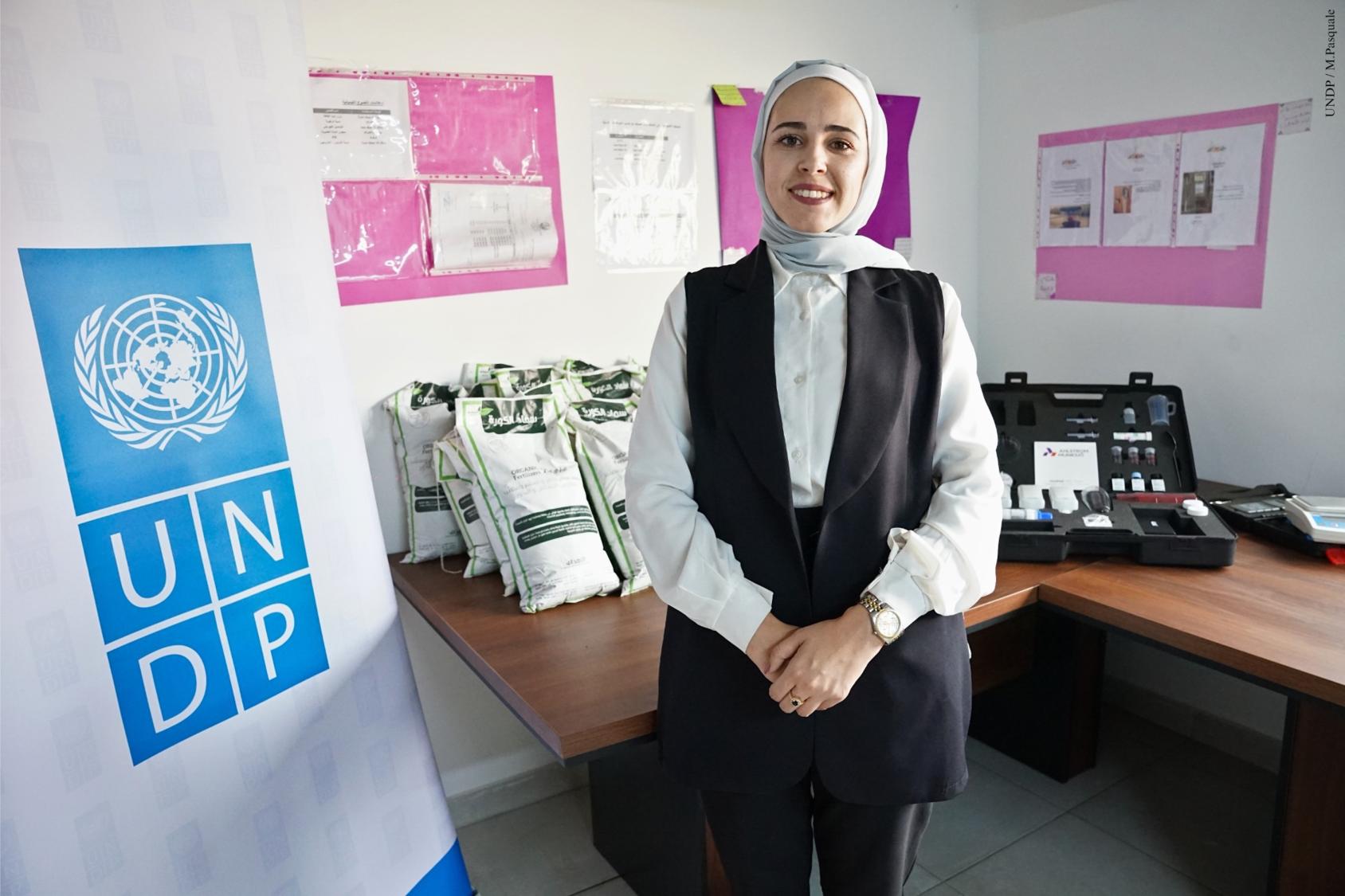
At the age of 32, Dina Rashdan is engaged in a UNDP-supported initiative focused on organic fertilizer production and recycling.
UNDP’s Enhancing Women’s Participation in the Solid Waste Management Sector Project in Northern Jordan serves as a model for promoting women's empowerment and gender equality, while ensuring environmental sustainability.
The project significantly reduces the amount of solid waste buried in landfills, thereby decreasing pollution and its negative effects. The production of organic fertilizer not only improves soil fertility but also helps recycle organic materials, lowering greenhouse gas emissions from decomposing waste.
The project has created numerous livelihoods for women and youth in fertilizer production and recycling operations. “Offering jobs in various areas such as collection, sorting, and marketing has allowed us to improve living standards,” Dina shares. “Participants have acquired new skills in operations, maintenance, and management, enhancing their job prospects.”
It has also decreased waste management costs for local authorities while providing affordable, high-quality organic fertilizer for local farmers. Developing a new value chain for recycling and utilizing recycled materials has significantly boosted the local economy.
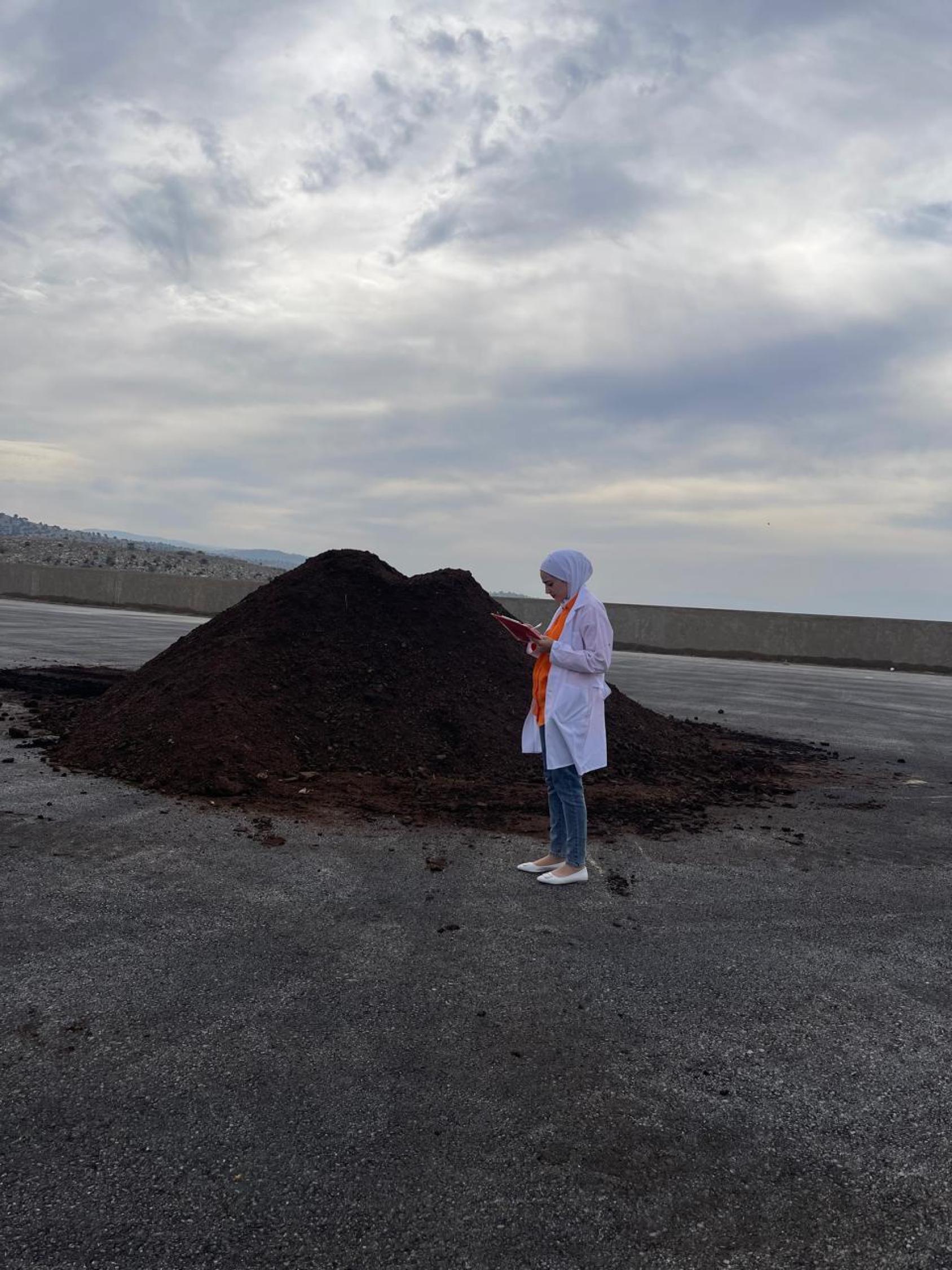
The project has thus far benefited 660 women in northern Jordan and inspiring other initiatives to take these lessons to the Southern parts of the country and enter the renewable energy sector too. It is also strengthening the role of women community-based organizations (CBOs) and cooperatives, providing financial support and and collaborating with national and local governments to enhance gender-responsive policymaking.
“The climate is changing faster than we are responding, and we must act quickly to accelerate the greening of our world,” Dina concludes.
Mariam Al-Joumaa: Growing a greener Jordan
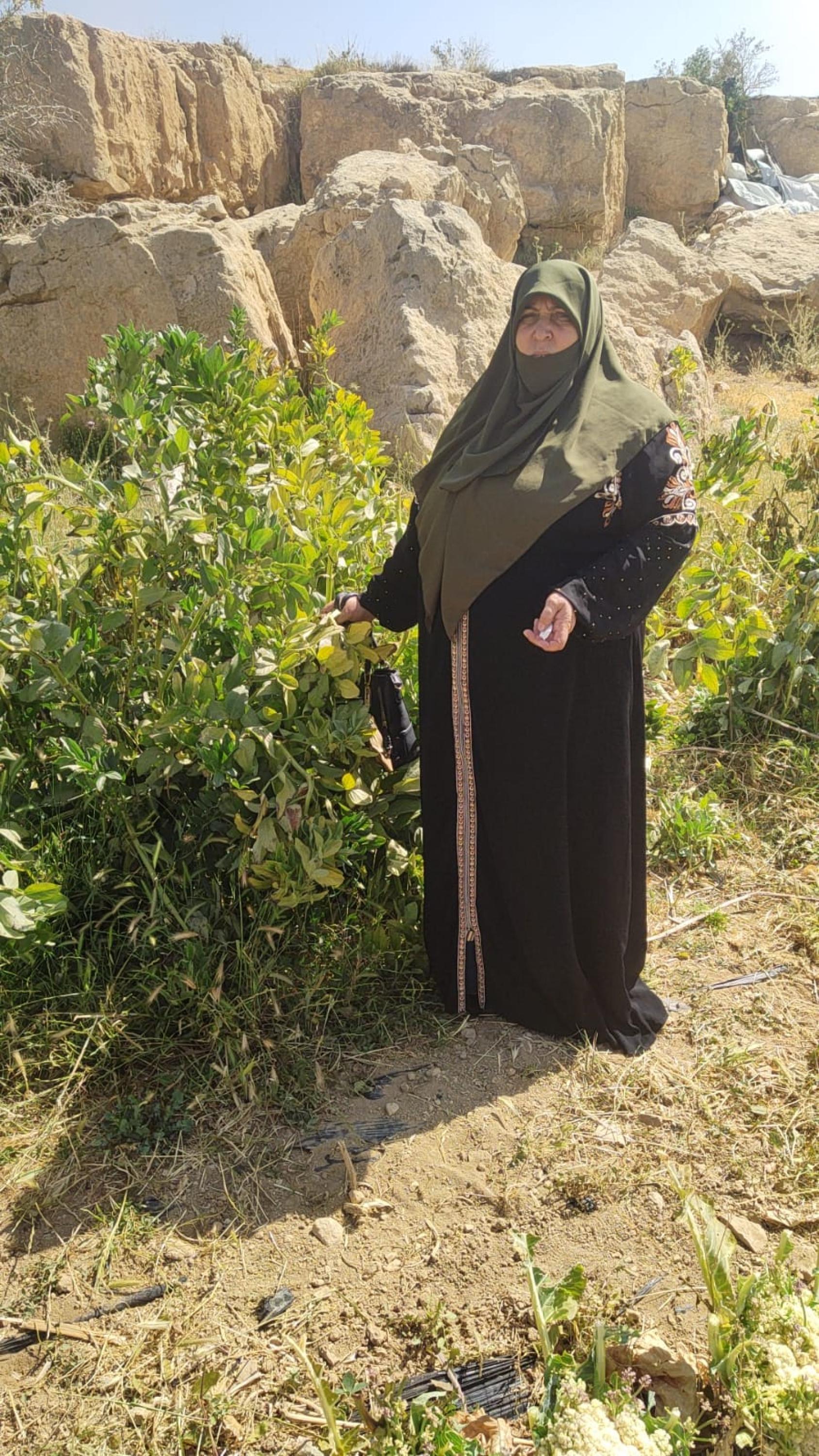
Mariam Al-Joumaa, a 57-year-old Syrian refugee, faced many hardships after fleeing the conflict and arriving in Jordan. Her only income came from humanitarian assistance from the UN in Jordan. However, Mariam’s unyielding spirit led her to a new opportunity through FAO’s grant programme ‘Transformation to more efficient, inclusive, resilient, and sustainable agrifood systems’, funded by the Norwegian government.
Partnering with Mohammad, a Jordanian landowner, Mariam worked to build a rainwater harvesting system and cultivate a variety of vegetables on a 2,000 square meter plot. With the support of the grant and the skills and knowledge Mariam acquired, the land soon transformed with onions, beans, and cauliflower flourishing.
After just three months, Mariam was harvesting not just for her family but for sale, securing profits. FAO's capacity-building programs equip them with the skills for sustainable agriculture and food systems. Furthermore, micro-financing and market access open doors to financial independence, while job creation programs connect beneficiaries with work opportunities. With over 300 jobs already created, this initiative is not just building systems; it's building a brighter future.
“This project reduced the burden on my shoulders,” Mariam shares. She and Mohammad plan to expand and build on their success, inspiring others to find their own path to self-sufficiency.
“In Jordan, I have cultivated a future filled with possibilities,” Mariam signs off.
Mariam: Shepherding the next generation
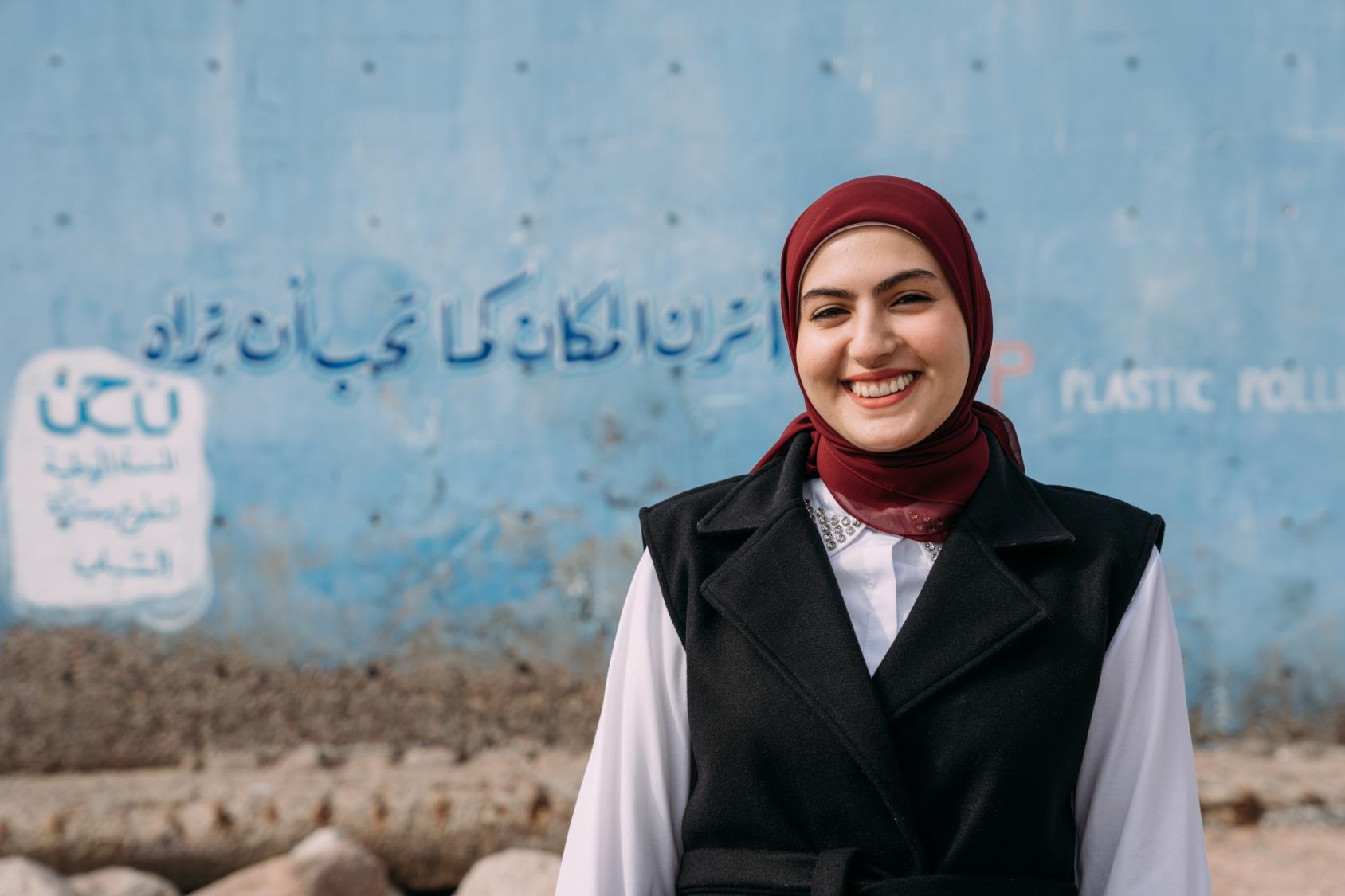
Mariam, a 22-year-old psychology major and teacher in Aqaba, Jordan’s only coastal city, has always been passionate about environmental issues. “My dad would take our family to the beach for picnics, but I was horrified that people didn’t pick up their trash,” she says. This early interest grew when, at 15, UNICEF staff visited her school to teach about the environment. “I learned that there is a lot we can do to take climate action,” she recalls.
At 21, Mariam joined the UNICEF-supported ‘Sawn’ program, meeting other young people committed to environmental activism.
Launched in 2022, the programme empowers young climate leaders with the training and skills needed to design and lead climate action locally and globally. These leaders in turn train additional youths, roll out advocacy initiatives in all 12 governorates, and participate in international discussions on youth climate activism.
“I educate my students about the environment,” Mariam explains. “I can see the pride in their eyes when they take action to clean up the environment. My hope is that they grow up holding onto those values so they can play their part in saving the planet.”
In Jerash, 48 kilometers north of Amman, 40-year-old Syrian refugee Razan Awad embarked on transforming her small home garden into a thriving food source.
Facing Jordan’s water scarcity, worsened by climate change, permaculture is a useful tool in providing food security and economic resilience.
Razan: Tapping water for resilience
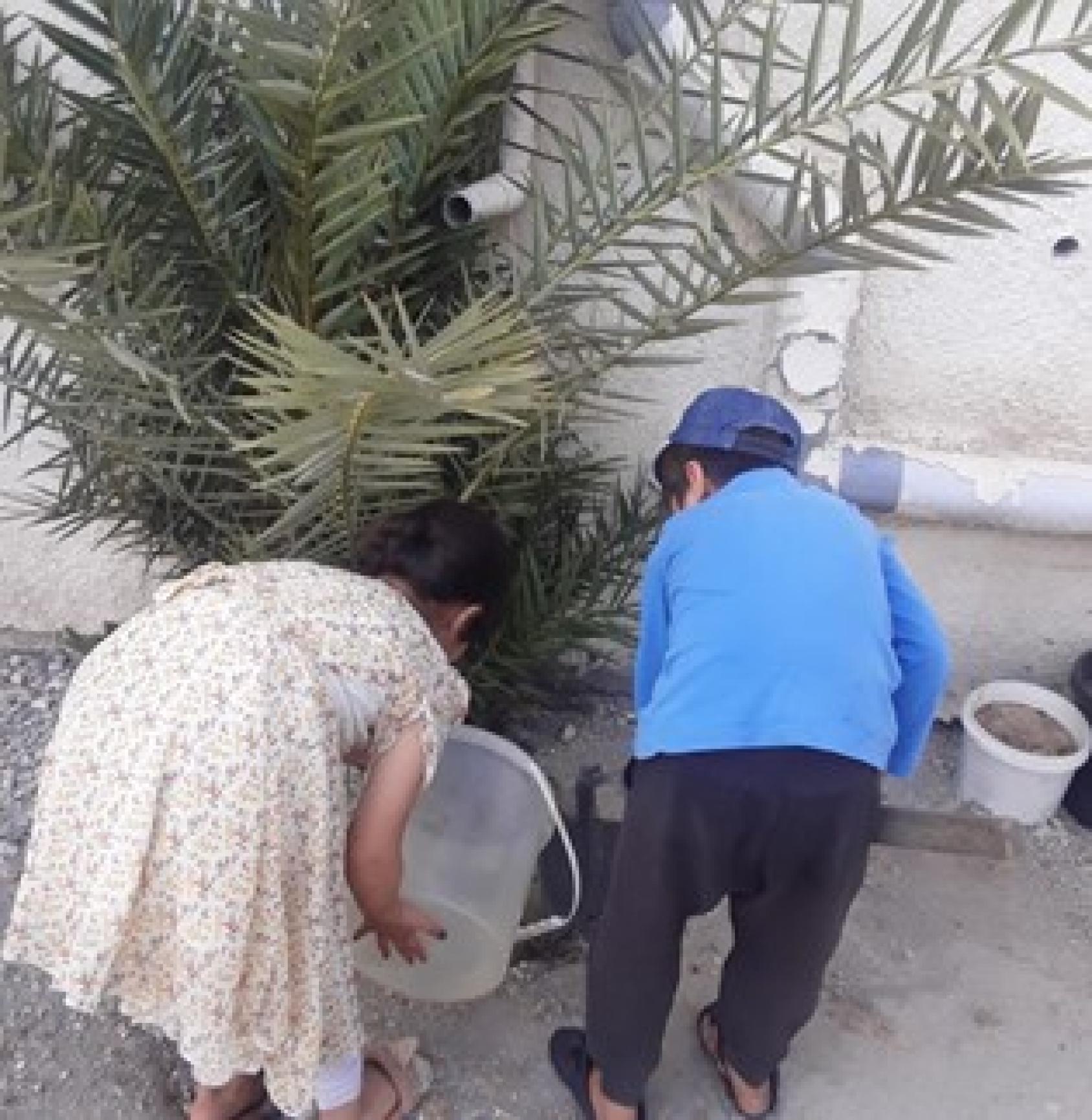
As part of the ‘Resilient Water Solutions Against Climate Change in Jordan and Lebanon’ project by UN-Habitat, Razan received training tailored to refugees and local communities, empowering her with essential permaculture skills.
Through intensive sessions, participants like Razan learn efficient water management, crop selection, and pest control, supported by methodologies from the Permaculture Research Institute.
With newfound agricultural skills, Razan not only improves her family's diet but also generates a modest income, easing her economic burdens.
Passing on her knowledge to her children, Razan fosters a passion for agriculture. As they learn about trees, she planted one, enhancing comfort and family bonding. Looking ahead, Razan dreams of a larger garden and sustainable living.
For more information about the UN's work in Jordan, please visit jordan.un.org
